The power of sound often transcends words, and Nigerian-born, Toronto-based artist Ṣẹwà uses her soulful voice as both a refuge and a weapon. Music is a form of healing for her, a creative outlet where she channels the complex emotions tied to her life experiences. With a sound that seamlessly blends Afrobeat, Fuji, Jazz, and R&B, Ṣẹ̀wà’s captivating performances and distinctive Afro-soul vibe have mesmerised audiences.
A singer, songwriter, multi-instrumentalist, and budding composer, Ṣẹ̀wà’s genre-bending music is both a tribute to her Nigerian roots and a reflection of her global experiences. She’s sold out concerts in Nigeria and Toronto, recently opened for the renowned Asa, and is currently working on her debut album set to launch her on a Canadian tour in 2025.
Her upcoming debut album, Detox, is a testament to her eclectic personality, blending live instruments with African influences. The 13-track project, made with her community, also includes a powerful bonus track dedicated to her father and the album promises to introduce listeners to the full spectrum of her sound and story.
In this interview, Ṣẹ̀wà opens up about her unique path, from learning guitar as a bucket-list wish to overcoming challenges and discovering the healing power of music. Join us as we delve into the mind of a rising star who’s on the brink of reshaping the soundscape of Afro-soul and beyond.
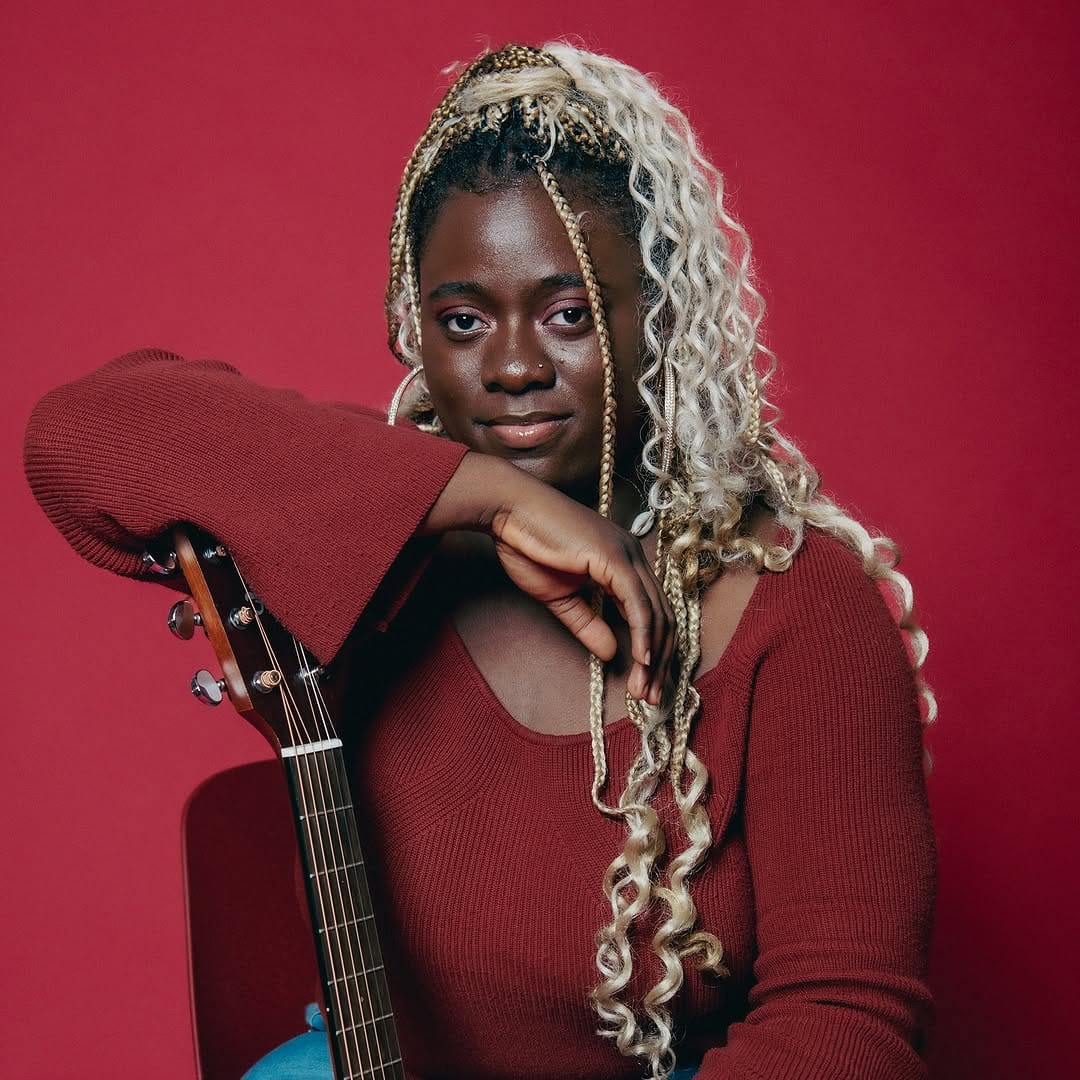
I’d love you to share about your background. Is this what you always wanted to do?
Unlike most musicians, I didn’t start off loving music. In fact, I only picked it up in 2016 after a life-changing accident in my family. It was such a profound event that I felt like I was at heaven’s door, so I decided to tick something off my bucket list. I asked my granddad to buy me a guitar, sort of like a last wish. I figured, if I was going to die, I should at least do something I’d always been curious about.
Growing up, my family went to Church, and I was always fascinated by the guitar players. I remember wondering how they could make beautiful sounds with six or sometimes seven strings. Whenever I went to church programs, I’d sneak off to detune someone’s guitar, a terrible thing to do, but I found it so amusing. I’d then run back to my parents, and they couldn’t scold me because I’d hide beside my dad. It’s a funny memory I still hold on to.
Anyway, my granddad bought me the guitar for 15,000 naira. I still remember it. It was a pretty cheap guitar, and I think I’ve broken it by now, but at the time, it felt perfect. I started learning an Asa song, and coincidentally, the chorus had my granddad’s last name in it. He would laugh every time I sang it, although I was terrible at singing. In fact, someone once told me I was a "sorry excuse for a singer," and honestly, I probably was back then.
What most people didn’t know was that I was dealing with a lot. I was grieving my dad, who passed away in the same accident that changed everything for me. I was in physical pain too, I had a sore on my leg that doctors couldn’t heal, and my temperature was constantly high. But as soon as I started playing the guitar and singing (badly), my mind shifted away from the grief and pain. It was like my brain let my body start healing. That’s when I became a believer in the power of mental health. If your mind can stop your body from healing, how can anyone deny the connection between the two?
So, that’s how I started playing guitar. When I was in Unilag, I carried my guitar everywhere around campus. People even nicknamed me “guitar girl.” Recently, someone emailed me, saying they remember me lugging my guitar around New Hall. It’s funny, they reminded me of something I’d rather forget, but it was still nice to hear from them.
I want to talk about those days because, wow, I felt like I was living life at full speed. Then, in 2021, I moved to Canada. My mom had been here since 2016, so she moved all of us here in 2021, though she’d been in Canada since before everything happened back in 2016, the year that changed my life. So, after years in Lagos, my grandparents and I finally joined her, and now the whole family is here.
The first year I came to Toronto, I found it tough to understand the music scene. Hip-hop dominates here, likely because of Drake. Funny enough, I’ve bumped into Drake twice since I’ve been here, once at a restaurant. It’s so random, but it reminds me of Lagos, like when you go to the Island and just bump into someone famous. That’s what it feels like here.
In that first year, I spent a lot of time at karaoke nights and open mics, trying to understand the sound and figure out how to fit my own music into it. My sound is Afro-soul, and it’s very different from what’s popular here. What I noticed, though, is that people loved it when I infused Yoruba into my music. They didn’t understand what I was saying, but they enjoyed the vibe and uniqueness.
In my second year, I decided to take my music more seriously. Before, I was just going with the flow, but then I thought, “Let me actually do this.” Up until that point, I had only released eight songs, mainly because I just didn’t get around to releasing them. But I wanted to push myself further, so in October 2023, I put together my first concert.
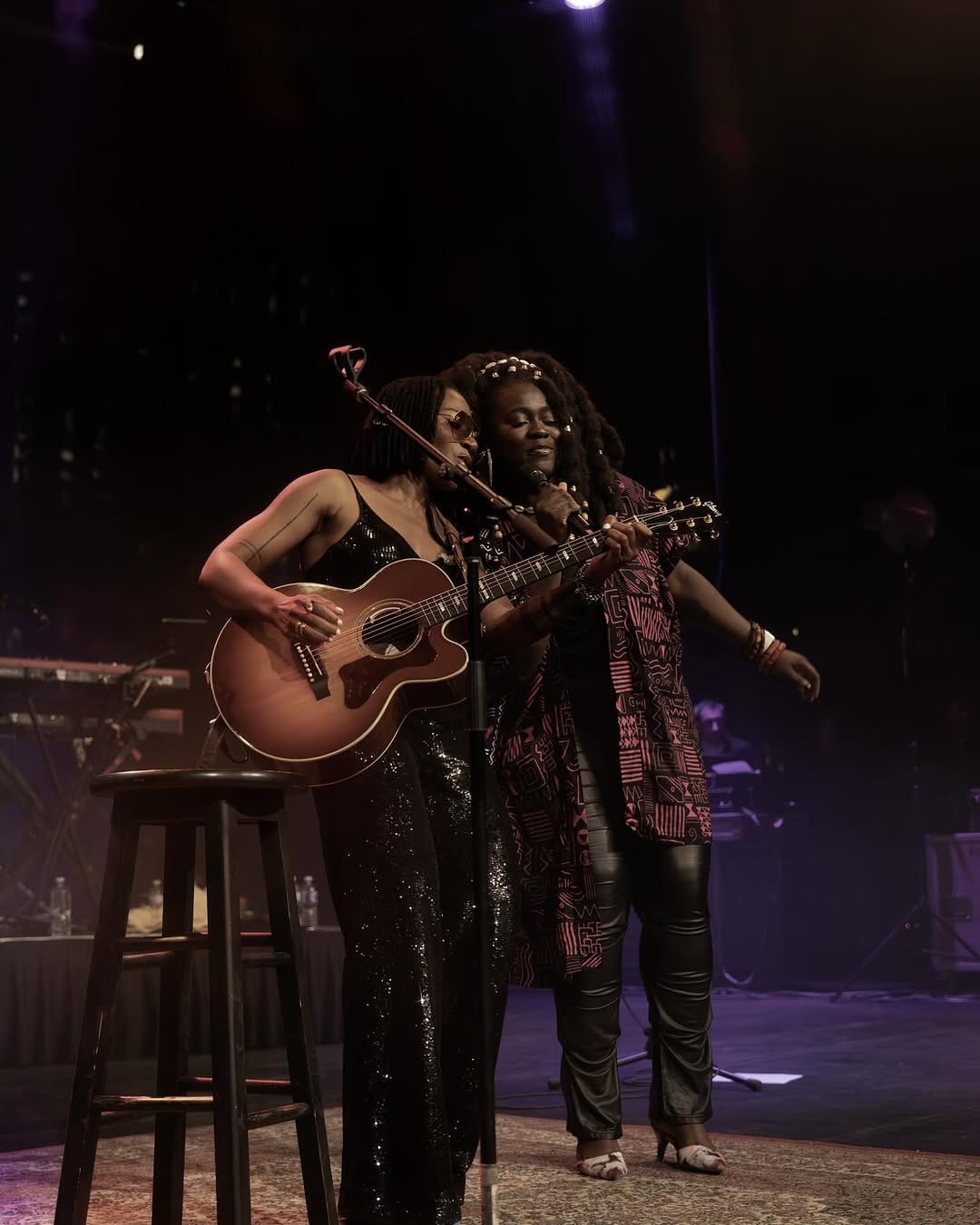
It was a 120-person capacity event, and I was shocked when it sold out! I honestly didn’t expect it because I thought, “Who even knows me here?” I figured my friends and family would show up, which was maybe 10 people, but what about the rest? I only had three weeks to plan the show, tickets went up in the second week, and by the last week, it was sold out. My mom was just as surprised as I was.
I didn’t have much of a budget, so I asked my band, who were all my friends, to help me out. I told them, “I don’t have money, but I’ll bring food.” My mom cooked because I was too busy with rehearsals, but in the end, my band had to leave before they could eat the food, so I ended up eating it myself. Despite the chaos, the show went incredibly well. It was such a surreal moment.
I feel like I’ve been on some people's radar this year. I did another show, and the same thing happened; it went really well. Then I heard Asa was coming to Toronto in October last year, and I thought, "Who else?" Because every time I perform somewhere with Nigerians in the audience, someone always says, "You remind me of Asa." I don’t think I’ve ever performed in front of Nigerians without hearing that. It’s a huge compliment, of course.
When I found out Asa was coming, I thought, "Who better to open for her?" Luckily, the promoter asked me to open for her, and I was thrilled. But the real surprise came when Asa called me back on stage to sing with her. That was such a huge moment for me. Honestly, I thought I’d freeze up, but I didn’t. It felt like I wasn’t even the one singing; it was like an out-of-body experience. I was watching myself perform, completely starstruck. Afterwards, I was like, "Did that really happen?" It didn’t sink in until I saw the video, and I realised, "Yeah, that actually happened!"
So that’s been my journey, from selling music to this point. Now, I’m working on an album set to release in May, and I have a single dropping next month. I’m just putting the finishing touches on everything, and it should all come together beautifully very soon.
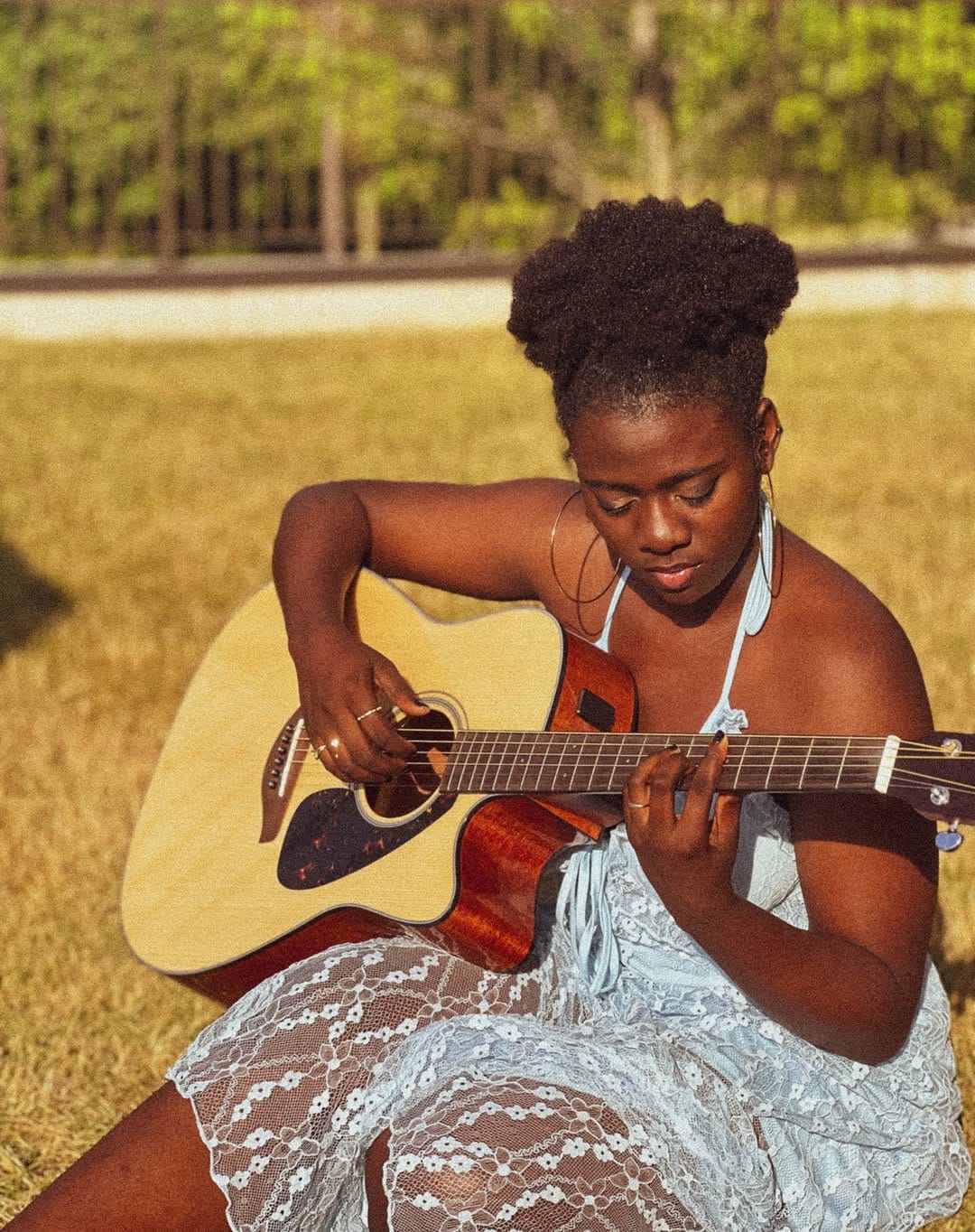
That's really exciting! I think your journey is a testament to the power of music—the healing power, in particular. I really appreciate that. You blend Afro-soul, jazz, and R&B in such a unique way. So, I wanted to ask: how do you approach blending these sounds together? I know they’re interwoven, but what does your creative process look like when you’re working with these genres?
So, the only thing I really try to do intentionally is incorporate Yoruba into my music, even though I didn’t grow up speaking it. I was born in Kaduna, and we lived in an area with wealthy Hausa people who spoke perfect English, almost British-sounding. It’s funny because here in Canada, they say I have an accent, but back home, I never did. It’s weird, but I digress.
Growing up in Kaduna, we mostly spoke English, but when I moved to Lagos, I made an effort to learn Yoruba. Whenever I saw my grandparents, I asked them to speak Yoruba to me, and while I would respond horribly, I made sure I understood it. Now, I can speak it fairly well, though I still want to perfect my accent. When it comes to music, though, Yoruba has such a natural flow, it blends so well with musical tones. Even if I mispronounce something, it still fits the melody, but I make sure to double-check my Yoruba with my friends, Toluwalase and Dotti the deity, and sometimes a musician friend, Kunle.
One thing I wish I could do is those classic church riffs. I didn’t grow up singing in church, so I don’t have that background. I’m envious of people who can do them, it’s such a cool skill. My style is more Afro-jazz, probably because I grew up listening to artists like Nina Simone, Louis Armstrong, Charlie Parker, Miles Davis, and Sarah Vaughan. I love jazz. It’s a huge influence on me, and I feel like that comes through in the way I sing and riff.
I once heard an artist say they weren’t influenced by anyone, and I just thought, "How?!" You can’t be an artist and not be influenced by something. Everything you do, even how you speak, is influenced by something or someone. To me, that kind of statement just sounds unnecessary.
The fact that I lived in Lagos makes it easier for me to infuse Afro elements into my music. Even if I sing purely in English, my lyrics still have an Afro feel to them, just in how I phrase things. It’s the way you word your lyrics, and I think that’s part of what makes Afro-soul so special.
When I’m writing, the first thing that comes to mind is the guitar, obviously. I know most people start by mumbling lyrics or melodies, but for me, I usually have a concept in mind. For example, I might think, “This person broke my heart,” and then I’ll pick up my guitar and start writing about it. I’ll build on that initial idea, then expand, sometimes even using tools like Google or RhymeZone to find rhymes, like “what rhymes with breakfast.” That’s how I develop my lyrics.
I see myself more as a singer than a guitarist. My guitar is more of an accompaniment; my main instrument is my voice. Without the singing, the guitar wouldn’t make sense. I’m not a virtuoso who can just play the guitar and have it stand on its own, it’s my singing that brings everything together.
I’ve also started learning audio engineering, focusing on mixing and mastering. I’m still learning the production side of things, though. I consider myself more of a composer than a producer. I can compose parts of songs and tell the band how I want things to sound, almost like a director. I’ll say, “I want this to sound like that,” and they’ll execute it. But when it comes to actually producing and putting everything on the computer, that’s not my strongest skill. I can give input, like, “Put the drums here, add this there,” but production isn’t my strength.
My strongest skills are singing, then guitar, and finally, audio engineering. I actually just finished some audio engineering work before this call, and I’ll probably get back to it right after.
One thing that stands out to me is when you mentioned earlier that your singing wasn’t great, to say the least. But now, singing has become one of your strengths. How did that progression happen? What changed?
That's true. I just started singing a lot without really trying to get better. If I had been more intentional, maybe I would have learned some extra skills, but I was just singing for the sake of it. I wish I had put more effort into improving. One day, I sang, and suddenly people started crying, and I thought, "Am I making you cry?" You should have seen me that day, I was so confused! Someone was crying, and I kept apologising. I even turned off my mic because the person was crying so much, and I thought, "What's going on?"
Another time, I ended up crying on stage, thinking about my dad, and then everyone else started crying too. I was like, "Oh no, I don't want to make you guys cry!" It's amazing to touch people's emotions like that, though. As an artist, it's such an ego boost to move people through your music. I've cried at concerts, watching my favourite artists perform. It's an honour to evoke that kind of emotion, but at the same time, I'm such an empath that I feel it deeply, and sometimes I don’t want to make people cry too much.
But yeah, I just sang a lot. I didn’t intentionally work on my skills. I also used to be terrible at singing with a band. I would get so distracted by all the different moving pieces, like the drums, that it would completely throw me off. Back in 2019 and 2020, I was super uncomfortable with it, and even my band members could tell. They’d straight up tell me, "You can't sing with a band." And I'd be like, "Yeah, I know, you don’t have to remind me!" But now, I can't imagine performing without a band.
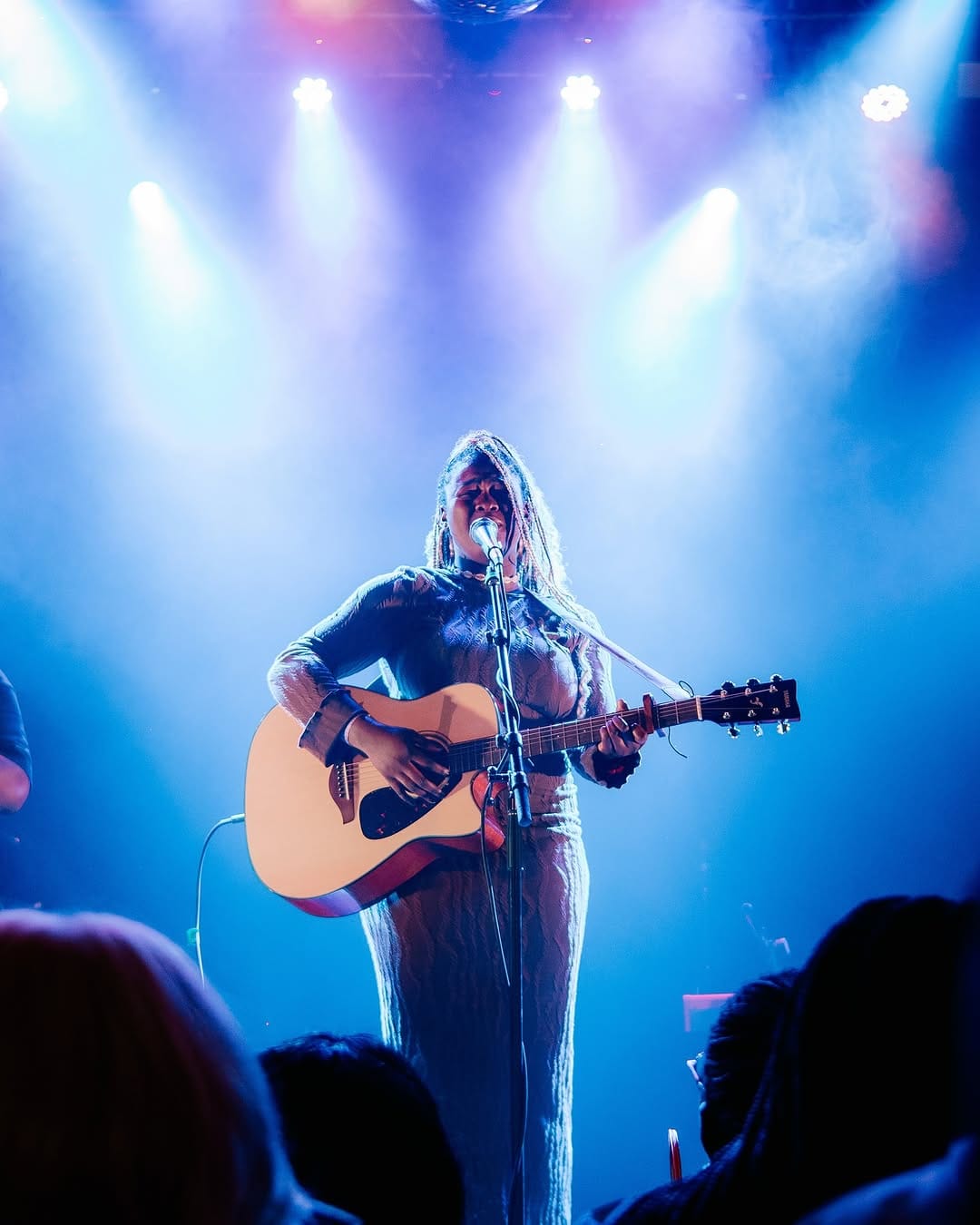
It’s lovely to see you're now really comfortable with your music now, which brings me to my next question. Throughout our conversation, you've mentioned a few people, and since community is a big theme here, I wanted to dive deeper into that. Could you share more about how your band plays a role in your music and how you were able to bring everything together, from arriving in Toronto to finding your community? How has that journey been, and what do you envision for the future when it comes to your community?
Thank you for that question. It’s a really good one because my band members and friends are people who have played with me when I couldn’t afford to pay them. God willing, they’ll still be with me when I can pay them well. I’ve rarely seen an artist who can put together an eight- or nine-piece band purely based on relationships. I feel so honoured and lucky. I’m usually not speechless, but these people are just incredible.
My pianist recently moved to Australia, so I’ll be working with someone else soon. His name is Kyle, and even from Australia, he helps me bring my vision to life. The bassist, Devin, is amazing; he shreds both guitar and bass. There’s also Ibeji from Nigeria, who wanted a band, and since we make similar kinds of music, it just fits. Then there’s my drummer, Temi. He’s a bit annoying in the most adorable way. He’ll say no to something, but then later show up and say yes. It’s frustrating but endearing at the same time. My backup singers, Leonardo and Ekene, are so talented. I’m genuinely emotional thinking about how lucky I am to have them. I can’t believe I’ve found such sweet people to work with.
Then there’s Mr. Durotimi, my talking drummer. I found him on an online marketplace when I was looking for a talking drummer near me. He was actually selling his talking drum! I asked him if he could play for me at my concert, and though I didn’t have much to offer, he said he would do it for free. I was stunned because he didn’t even know me.
Kunle is another incredible musician; he plays in an orchestra here and serves as my main guitarist. He’s also a musical director, and he even played with me for Asa, which was amazing.
They’ve been so supportive in helping me get to the point where I can. Most musicians try to find other people to collaborate with, but these guys understand my sound and have stuck with me for a while. I want to make sure it’s worth their time in the long run.
I met most of my band members at open mics or through Instagram. Those open mics really helped me make the most valuable connections. For example, I met Devin, the guitarist, through my friend James, whom I also met at one of the performances I attended.
Moving to this country as an immigrant is tough. When we first arrived, it was like everyone was just minding their business. There’s this sort of depression that hits you the moment you get off the plane. People don’t ask how your day is going unless you’re in church or school, so it’s been hard to find that connection. I went to Seneca College to study audio engineering, and I was the only Black person and the only girl in my class, which felt very weird. But despite that, my family is here, and that gives me some comfort, even though it’s not quite the same as back home.
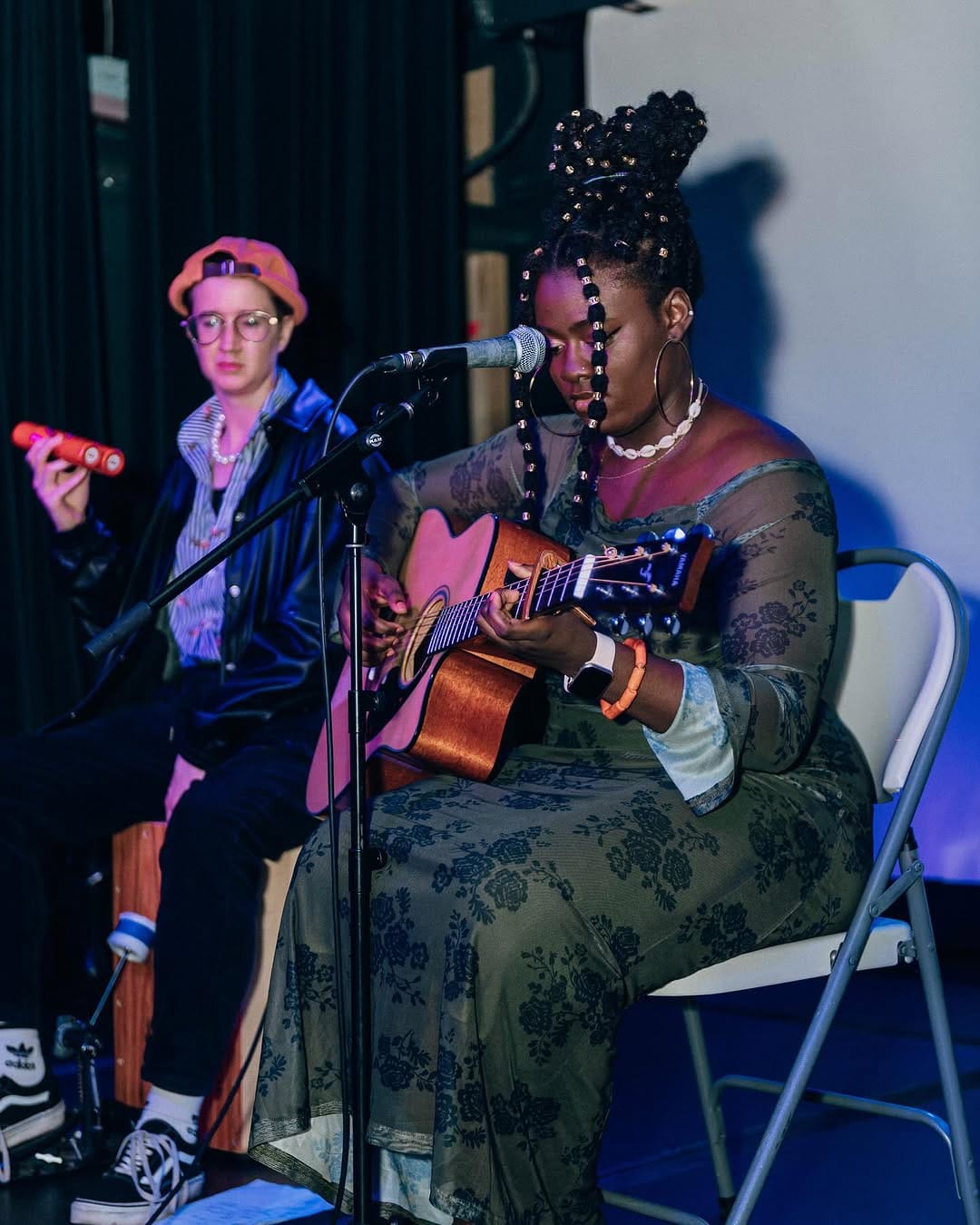
It’s really sweet that you’ve found your community and friends in your band. You mentioned your sold-out concert and how you didn’t even expect it, and then opening for Asa, especially when she called you back on stage to sing with her. What would you say have been some of the biggest moments where you thought, “Yes, music is definitely what I’m meant to do in life?”
I think there are so many moments like that, and I find myself reflecting on them often. I used to date someone who was in the music scene, and while he had a well-deserved bright light, I found myself dimming my own to fit in, both consciously and subconsciously. Those were some of the darkest months of my life because I wasn’t living in alignment with my purpose. I kept asking myself, “What am I supposed to be doing with my life?” I couldn’t picture myself doing anything else.
I’m not cut out for a 9-to-5. Honestly, I think I would lose myself if I had to sit at a desk all day. I worked a 9-to-5 for a few months two years ago, and it was the worst time of my life. I couldn’t create; my brain just wasn’t functioning. But the moment I quit that job, that same day, I wrote five songs. That’s when it hit me: there’s nothing else I’m meant to do but music.
There have been so many moments that validated this for me. I remember during the Aṣa concert, someone tweeted, "When opportunity meets preparation," and that resonated with me. I’ve been preparing for so long, not just for that moment, but for everything that’s leading up to where I’m truly meant to be. That experience was incredibly validating. Any doubts I had about my music disappeared after that, and now I’m fully committed to what I’m working on, especially my album.
Performing is another defining moment for me. Every time I get on stage, I feel completely at home. It’s my safe space, and everything else just goes quiet in my mind. I have ADHD and depression, so I’m used to my mind always racing, but when I’m performing, it’s the one time everything just settles. If people in the crowd are talking, I usually don’t even hear them, unless it’s really distracting. There are countless moments like this where I realise there’s nothing else I’d rather be doing. Even if I wasn’t singing, I’d still be in the music business—maybe as a manager or an A&R, because I’ve always had a knack for recognising talent. So many of my friends from Lagos who I knew would be successful, are now huge celebrities, and I’m like, “I knew it.” I could always spot the stars.
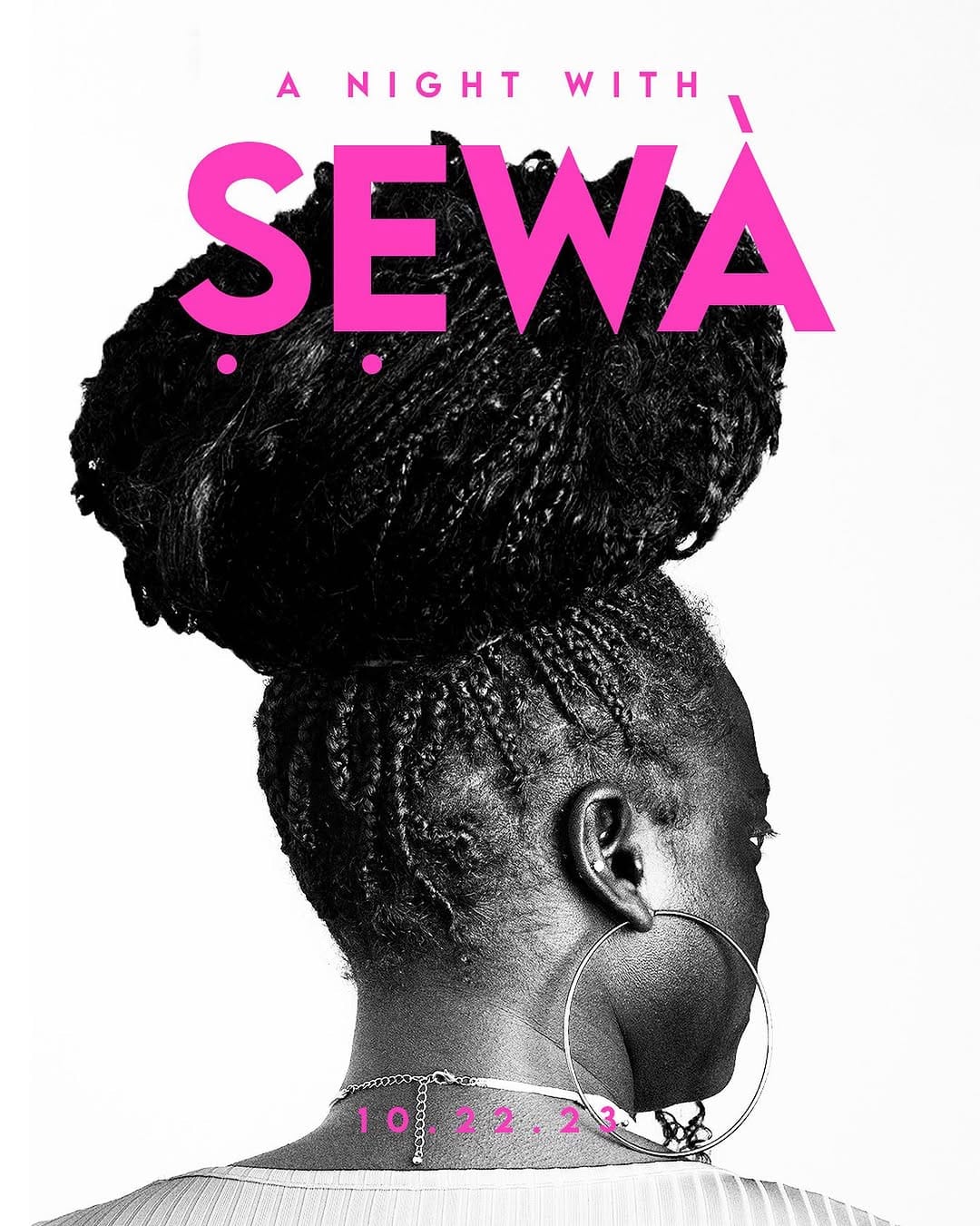
That makes sense. As I mentioned earlier, music is incredibly healing, and your story is a powerful testament to that. I find it really inspiring. Speaking of inspiration, I wanted to ask, what are some of the challenges or lessons you've encountered on your journey, and how have they shaped or inspired you?
Being a Black woman, especially one who doesn't fit the conventional mold of beauty, comes with its own challenges. Society says we have a voice, but honestly, it’s more performative than real. On top of that, I’m not skinny, I’m thick, and I’m not considered conventionally attractive by certain standards. I don’t dress to be "decent" or to make a statement, I just dress for comfort. I have body dysmorphia, so I tend to wear oversized or long dresses to feel more comfortable in my skin. But I know my body still shows, and I’m okay with that. I dress this way because it's my style and it suits me. It's not about decency, I just know what works for me.
When I sing, especially about heartbreak, people often assume I’m talking about a guy. But really, I use that as a metaphor for deeper emotions, particularly about my dad and how I’ve processed those feelings. I'm not yet ready to be raw and open about it. So I channel that pain into something more relatable for others.
As much as I love that people focus on my music, it also means the only thing I’m known for is my singing, which can feel limiting. People want more; they want something extra to latch onto. It’s a double-edged sword being a woman, you hate it but love it at the same time. Society is what it is. And being a Black woman doing soul music? Whew, where do I even begin?
I’ve been told that I can’t perform in certain places because my music is "too slow" or "boring." Promoters have said, “I don’t want you playing guitar here; it’s too public an event." I get it, there’s a place for everything. But when I’m being excluded, it’s frustrating. At events, the music tends to sound repetitive because they have 10 opening acts that all follow the same vibe. It gets tiring for the audience after a while, but when I suggest doing something different, they turn me down.
Funny enough, those same people who rejected me before are now asking me to perform at their events or open for artists coming to town. I’ll find my own way in, but it’s weird how the tables have turned.
It’s tough doing music as a Black woman. I once wrote down my thoughts on this: “As a Black woman making soul music, one challenge I face is that not everybody resonates with my genre. Especially when mainstream music tends to favour other styles, people often expect Black artists to fit certain boxes. But I’ve learned to embrace that uniqueness. I stay true to my craft, trusting my artistry and connecting with those who value authenticity. It’s also about breaking barriers, being consistent, and creating music that speaks to me and my audience.” Mic drop.
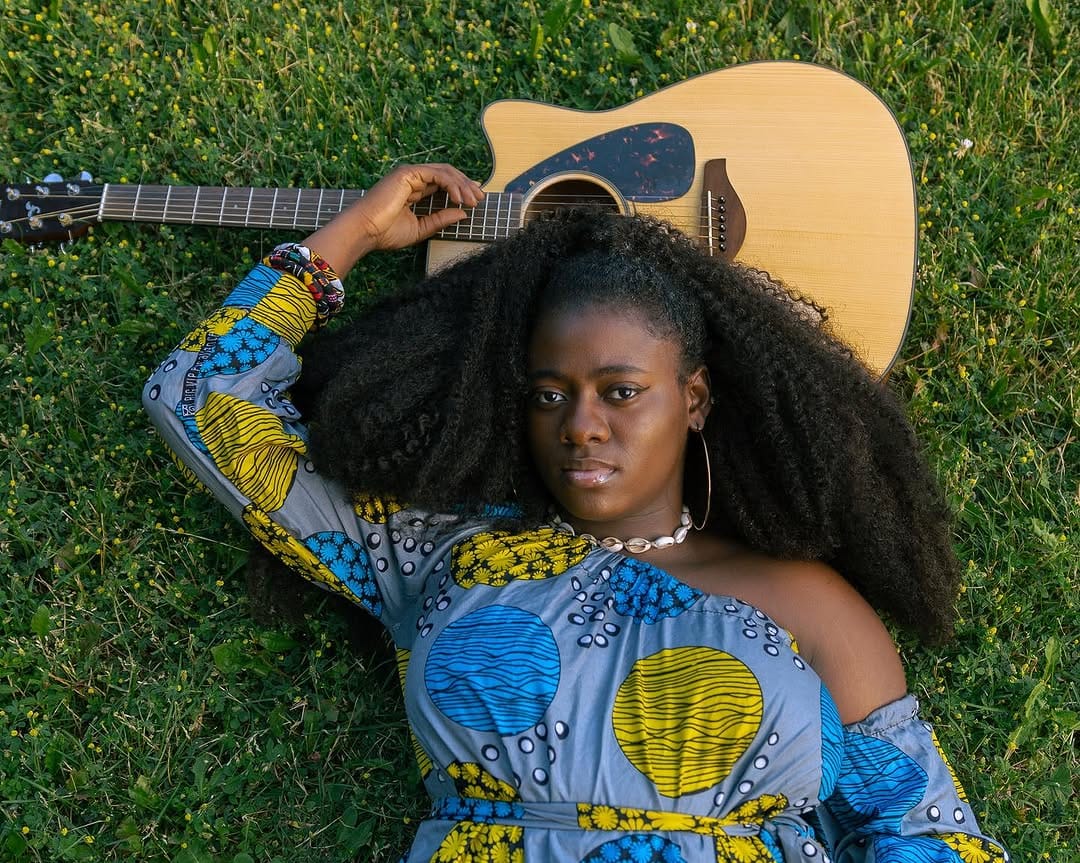
Your genre is soulful, and I feel it carries a lot of emotion, which I absolutely love. But sometimes, people can be a bit shallow, especially when it comes to music. The industry itself is very brutal, particularly for women, whether it’s the music industry or the media. My last question is about your album and single. Can you share what that journey has been like? What has the process been, and what can we expect from it?
The album is called Detox. It’s more about embracing a personality. I’ve been called a thug before and even unladylike. As soon as you don't fit the stereotype of being “feminine,” people label you as manly. I’m soulful, but I’ve also been described as hyper-expressive, and that's just who I am. I’m very energetic until I eventually crash. One day, someone called me a “soulful thug,” and I thought, "Yeah, that fits." It just made so much sense for my personality. Even the way I talk probably gives off those vibes. But when I say “thug,” I don’t mean it in the way people usually think, like being “ratchet” or not caring. It’s more about reclaiming the word for myself and owning it.
So, yeah, that’s where the album name came from. It was originally supposed to be a 12-track album, but I think I’m going to add a bonus track, a song I did for my dad. I had planned to include it on my next album, which is more focused on my ex, but it felt weird to mix those two themes. So, I figured it would fit better on Detox, which doesn’t really have a specific theme, it’s more of an introduction to my sound.
I recently performed that song for my dad and ended up crying on stage. The audience was crying too. It was sad, but in a way, it was also really beautiful. I scheduled my show on Father's Day intentionally, so I wouldn’t dwell too much on the day itself. But, of course, I ended up crying anyway. It’s okay though, it’s good to be vulnerable sometimes. That performance confirmed that this song belongs on this album.
The project I’m working on is a 13-track album. I wanted each song to have a live component, so I’ve incorporated live instruments. I composed most of the tracks, though two of the songs were produced by friends. Timi Dre produced Rotimi and Seventh, a Jamaican-Canadian, produced Lagos Loving. Lagos Loving, the first single is a feel-good track about a guy trying to win back a girl who’s had enough and is telling him to leave her alone. The song has a jazzy vibe, but I didn’t sing it in a typical jazz style. Even with my Afro-soul approach, you can still hear African influences in how I sing, especially with the Yoruba I included in the song.
Writing it was such a fun experience! Fun fact: I got inspired to write "Lagos Loving" after hearing a song by PJ Morton and Asa called All The Dreamers, and after listening to it, my friend played me a beat, and I just started singing the chorus. It all clicked, and everyone loved it, my audio engineer, the guy distributing the track, even the graphic designer. The single is coming out soon, and we're aiming for a late April or early May release for the full album.
The project is very much a community effort. My friends play the instruments, Temi plays the drums on all the live tracks, Kyle plays the keys and guitar, and I also did some of the guitar work. Jakim composed the strings and orchestral ensemble for a song called "Brother Kewe," which is such a feel-good track too. Altogether, the project should be about 40 minutes long, with most songs around four minutes each.
The album, titled Detox, is my debut, a true introduction to my sound and my life. I’m so excited about the cover art, which will be shot by a photographer named Tayo, and Rakiya will be doing my hair for it. I’m really happy with how everything is coming together. The first single is so good, and I don’t want it to go unnoticed.
It’s a Welcome to My Sound, Welcome to My Life album
I love that. Thank you so much for talking through your journey with me. I’m excited for the album and all that’s to come.

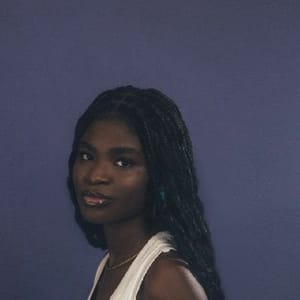
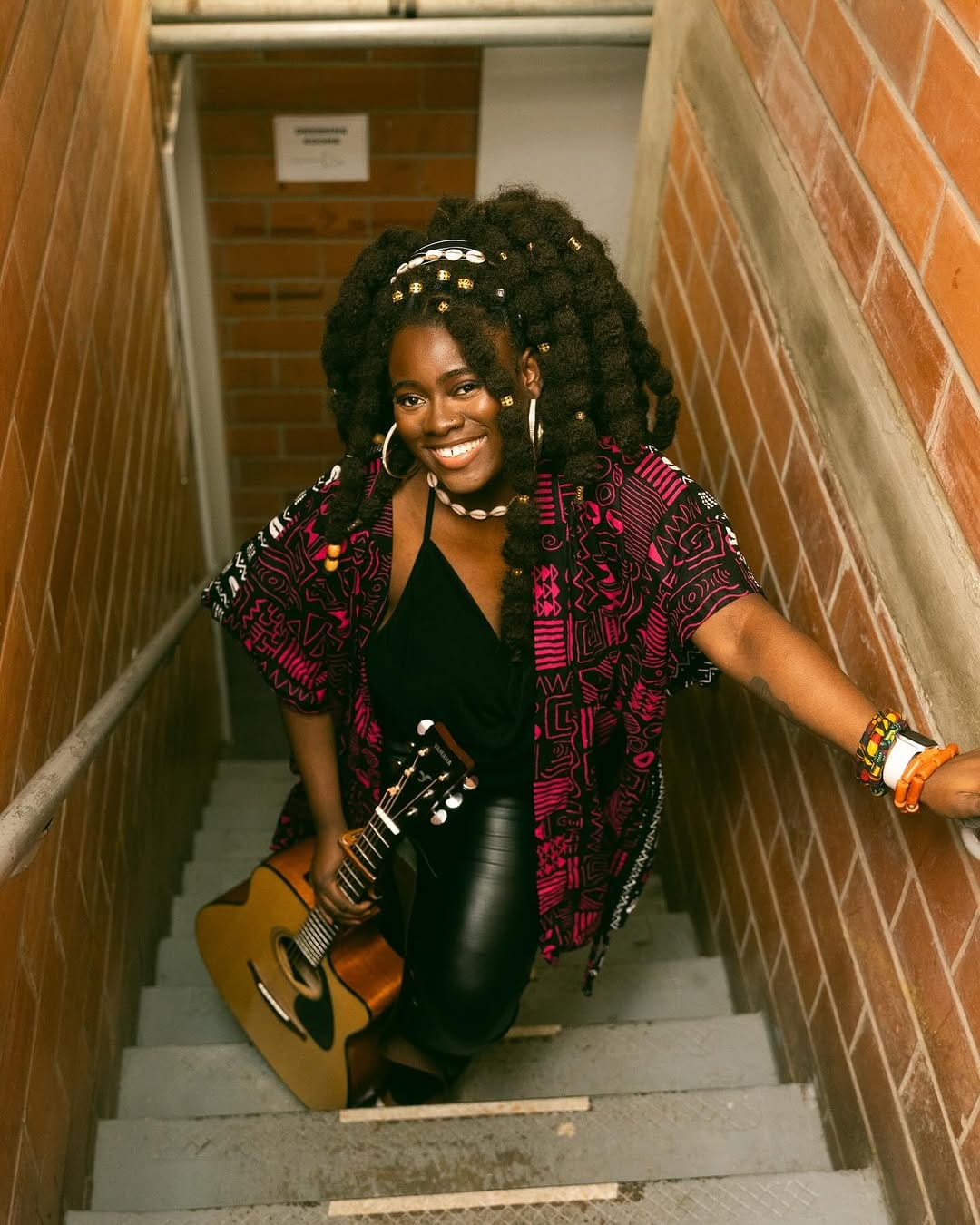

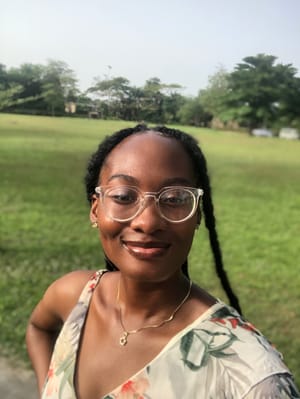
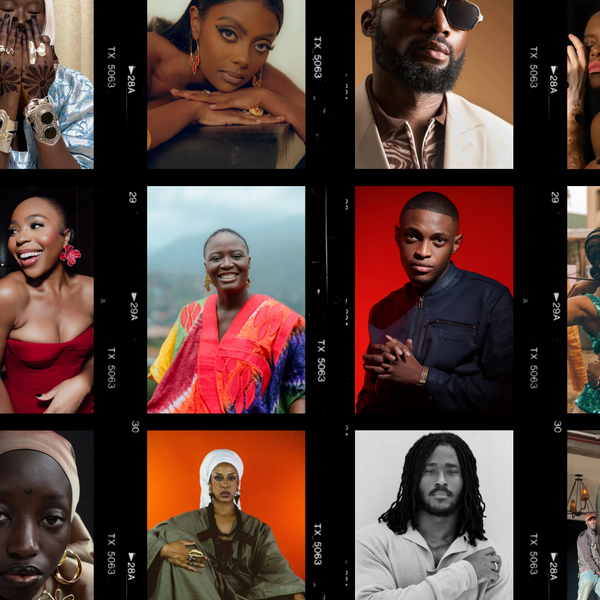
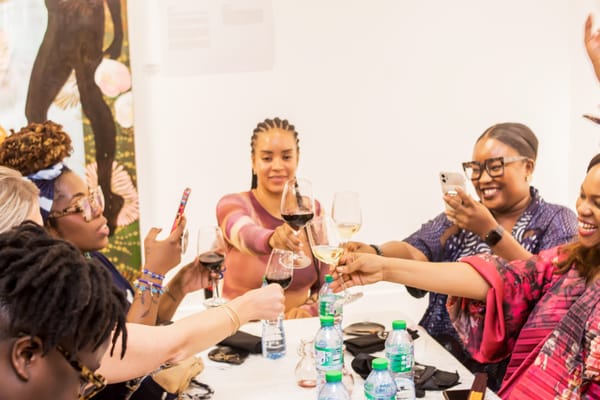
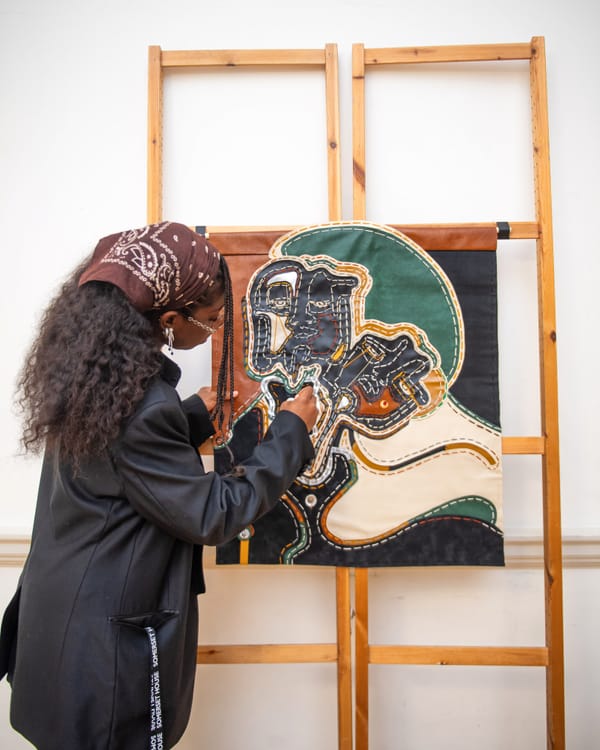
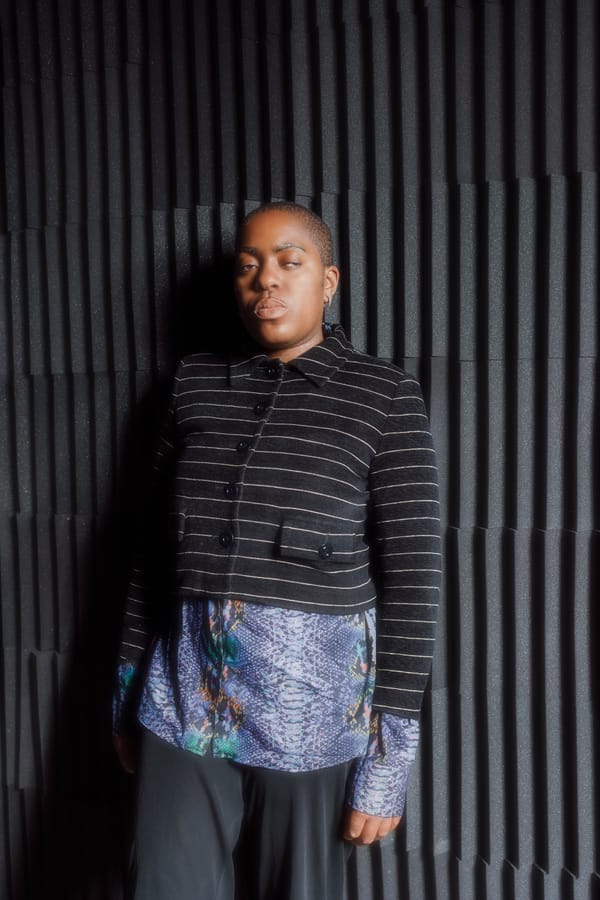
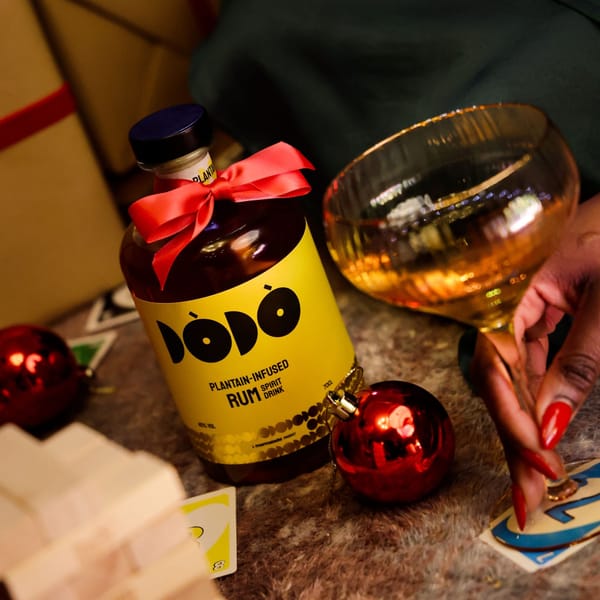
Member discussion